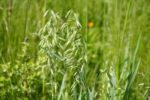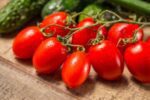Last updated on April 3, 2025
A few years ago, I struggled with growing healthy vegetables in my backyard garden. Despite all my efforts, my plants looked weak, and the harvest was disappointing. That’s when I discovered the power of organic fertilizers. Not only did my vegetables thrive, but they also tasted better. If you’ve been facing similar issues, you’re in the right place.
Organic fertilizers provide essential nutrients to your vegetables while improving soil health. Unlike chemical fertilizers, they work with nature, feeding beneficial microbes and enhancing plant resilience. In this article, I’ll cover the top 10 best organic fertilizers and how to use them for the best results.
Why Organic Fertilizers Matter for Vegetables
Many gardeners wonder whether organic fertilizers are worth the effort. The short answer? Absolutely! Unlike synthetic fertilizers, which provide a quick nutrient boost but degrade soil quality over time, organic fertilizers feed the soil and plants sustainably.





Benefits of Organic Fertilizers:
- Improve soil structure and fertility
- Increase microbial activity for healthier plants
- Reduce chemical runoff and environmental pollution
- Enhance the flavor and nutritional value of vegetables
- Provide slow-release nutrients for long-term plant health
Now, let’s look at the best organic fertilizers and how to use them effectively.
Top 10 Best Organic Fertilizers for Vegetables
1. Compost
Compost is one of the most effective organic fertilizers. It consists of decomposed organic matter, such as kitchen scraps, yard waste, and manure.
Benefits:
- Improves soil structure
- Provides a balanced mix of nutrients
- Enhances moisture retention
How to Use:
- Mix into garden soil before planting
- Use as mulch around plants
- Add to potting mixes for container gardening
2. Manure
Animal manure, including cow, chicken, and horse manure, is a rich source of nitrogen and other nutrients.
Benefits:
- Boosts nitrogen levels for leafy plant growth
- Enhances soil microbial activity
- Improves water retention
How to Use:
- Apply well-composted manure to garden beds before planting
- Use as a top dressing for fruiting plants
- Avoid fresh manure, as it may burn plant roots
3. Bone Meal
Bone meal is made from ground animal bones and is an excellent source of phosphorus and calcium.




Benefits:
- Encourages strong root development
- Promotes flowering and fruiting
- Helps prevent calcium deficiencies
How to Use:
- Sprinkle around flowering plants and fruiting crops
- Mix into soil when planting bulbs
- Apply every few months for long-term nutrient release
4. Fish Emulsion
Fish emulsion is a liquid fertilizer made from fish byproducts. It is high in nitrogen and micronutrients.
Benefits:
- Rapid nutrient absorption
- Encourages lush foliage growth
- Supports beneficial microbial life in the soil
How to Use:
- Dilute with water and apply as a foliar spray
- Use as a soil drench for vegetables and ornamentals
- Reapply every two weeks for best results
5. Blood Meal
Blood meal is a dry, powdered fertilizer made from animal blood. It is a potent source of nitrogen.
Benefits:
- Provides an immediate nitrogen boost
- Encourages vigorous leafy growth
- Helps deter certain pests, like deer and rabbits
How to Use:
- Sprinkle around the base of nitrogen-hungry plants, such as lettuce and corn
- Mix into soil before planting leafy greens
- Avoid overuse, as excess nitrogen can harm plants
6. Seaweed and Kelp Fertilizer
Seaweed and kelp fertilizers are derived from ocean plants and provide a broad range of micronutrients, growth hormones, and beneficial compounds.
Benefits:
- Enhances plant resilience to stress
- Boosts root and flower development
- Improves soil microbial activity
How to Use:
- Apply as a foliar spray or soil drench
- Use regularly for ongoing plant health
- Works well in conjunction with other fertilizers
7. Green Manure
Green manure involves planting cover crops, such as clover or alfalfa, which are later tilled into the soil to decompose and enrich it.



Benefits:
- Naturally increases soil nitrogen
- Improves soil structure and aeration
- Prevents soil erosion
How to Use:
- Plant cover crops during the off-season
- Till them into the soil before the next planting cycle
- Works best in crop rotation systems
8. Worm Castings
Worm castings, also known as vermicompost, are the nutrient-rich waste products of earthworms.
Benefits:
- Increases soil fertility and microbial life
- Provides slow-release nutrients
- Improves soil aeration and moisture retention
How to Use:
- Mix into potting soil for indoor and outdoor plants
- Apply as a top dressing for garden beds
- Use in seed-starting mixes for strong seedlings
9. Rock Phosphate
Rock phosphate is a natural mineral fertilizer that provides a slow-release source of phosphorus.
Benefits:
- Supports root and flower development
- Ideal for fruit trees and flowering plants
- Helps strengthen plant cell walls
How to Use:
- Apply to soil before planting perennials and fruit trees
- Mix into compost for balanced nutrient availability
- Works best in acidic soils
10. Epsom Salt
Epsom salt (magnesium sulfate) is often used to correct magnesium deficiencies in plants.
Benefits:
- Promotes chlorophyll production and photosynthesis
- Enhances fruit and flower development
- Improves nutrient uptake
How to Use:
- Dissolve in water and apply as a foliar spray
- Mix into soil for magnesium-deficient plants like tomatoes and peppers
- Use sparingly to avoid overuse
What is the best 100% organic fertilizer?
The best 100% organic fertilizer depends on your soil and plant needs, but top choices include compost for overall soil health, worm castings for microbial activity, manure for nitrogen, bone meal for phosphorus, and seaweed fertilizer for micronutrients and plant resilience.





How to Choose the Right Organic Fertilizer
Selecting the best organic fertilizer depends on your soil condition and the needs of your plants. Consider the following:
- Soil Test Results: Conduct a soil test to determine nutrient deficiencies.
- Plant Type: Different plants have varying nutrient requirements.
- Application Method: Some fertilizers work better as foliar sprays, while others are ideal for soil amendment.
- Long-Term vs. Immediate Needs: Slow-release fertilizers improve long-term soil health, while liquid fertilizers provide quick nutrient boosts.
How to Use Organic Fertilizers for Vegetables
Choosing the Right Fertilizer for Your Vegetables
Different vegetables have different nutrient needs. Understanding N-P-K ratios (Nitrogen, Phosphorus, Potassium) will help you choose the best fertilizer:
- Leafy Greens (Lettuce, Spinach, Kale): High nitrogen (Blood Meal, Fish Emulsion)
- Root Vegetables (Carrots, Beets, Potatoes): High phosphorus (Bone Meal, Compost)
- Fruiting Vegetables (Tomatoes, Peppers, Squash): Balanced mix (Compost, Fish Emulsion, Seaweed Fertilizer)
Best Practices for Applying Organic Fertilizers
- Before Planting: Mix compost, manure, or bone meal into the soil.
- During Growth: Use liquid fertilizers like fish emulsion or compost tea for a quick boost.
- At Flowering/Fruiting: Apply potassium-rich fertilizers like seaweed extract or wood ash.
Common Mistakes to Avoid
- Over-fertilizing: Too much nitrogen can lead to excessive leaf growth and fewer fruits.
- Using Fresh Manure: Can burn plants and introduce harmful bacteria.
- Applying Fertilizers at the Wrong Time: Always fertilize when plants are actively growing.
Frequently Asked Questions
How long does organic fertilizer take to work?
Organic fertilizers release nutrients slowly, usually over weeks or months, depending on the type used.
Can I mix different organic fertilizers?
Yes! Combining compost with bone meal or fish emulsion can create a balanced mix for different plant needs.




What’s the best organic fertilizer for tomatoes?
Compost, bone meal, and fish emulsion provide a balanced mix of nutrients essential for tomato growth.
How often should I fertilize my vegetables?
Leafy greens: Every 3-4 weeks
Fruiting vegetables: Every 2-3 weeks during flowering and fruiting
Root crops: Once at planting and once mid-season
Can I use organic fertilizer for container plants?
Yes! Compost, worm castings, and fish emulsion work well for potted plants.
Conclusion
Organic fertilizers are the key to growing healthy, productive vegetables while maintaining soil health. Whether you’re using compost, fish emulsion, or neem cake, each fertilizer offers unique benefits. The key is to experiment and find what works best for your plants.




So, what’s your go-to organic fertilizer? Let’s discuss in the comments!


